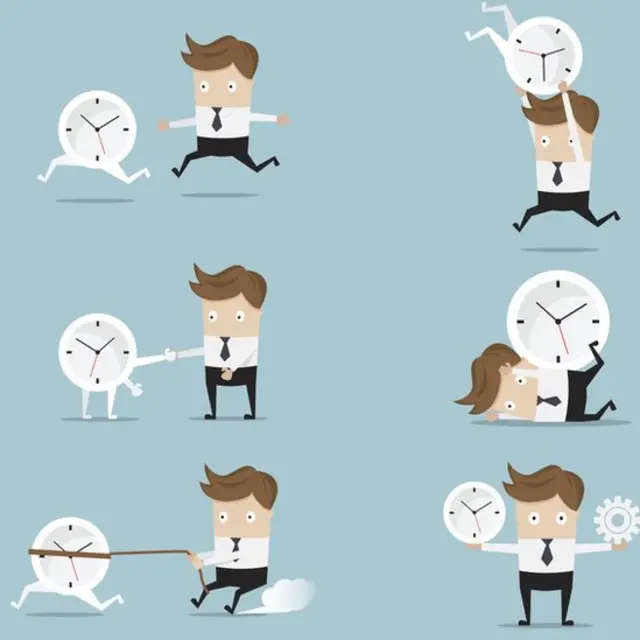
Why Does the Year Seem to Fly By?
Many people report feeling like time accelerates as they age or as they get busier. This perception has roots in psychology, neuroscience, and even the way our lifestyles have changed over time.
1. The Role of Routine and Memory
One of the primary explanations for why time seems to fly as we age is that our lives become more routine. According to neuroscientists, the brain processes familiar experiences more quickly and pays less attention to repetitive tasks.
- As children: Each year feels long because we experience so many “firsts” — our first school day, vacations, birthdays, and adventures. The novelty creates lasting memories that make time feel stretched.
- As adults: Our lives fall into routines — work, family responsibilities, and daily habits. Fewer novel experiences mean fewer memorable events, so time feels like it moves faster.
2. The Brain’s Perception of Time
Our brains don’t measure time in minutes or hours; instead, we estimate time based on events and experiences. When days blur together because of repetitive tasks or scrolling endlessly on social media, it creates the illusion that time has flown by.
3. Digital Overload and Attention
The more we divide our attention between tasks, screens, and notifications, the less present we are in each moment. This fragmented attention makes time feel disjointed, contributing to the sense that the year “disappeared” quickly.
Does Being Constantly Connected Make Time Feel Faster?
Technology has revolutionized our lives, making communication instant and information always available. However, this constant connection has unintended effects, including how we perceive the passage of time.
1. The Rise of “Time Compression”
Digital connectivity often forces us into a fast-paced mindset. We consume short, bite-sized information — like social media posts, emails, and texts — that keeps us constantly engaged. This phenomenon, known as time compression, makes it feel like there’s never enough time in a day.
2. The “Endless Scroll” Effect
Social media platforms like Instagram, Facebook, and TikTok are designed to keep us hooked. The endless scroll feature creates a sense of time distortion, where hours can pass unnoticed. You might intend to spend five minutes on your phone but find yourself scrolling for 30 minutes or more.
Why Does This Happen?
- Social media provides instant gratification through likes, comments, and notifications.
- Each post is a micro-event, filling time without creating meaningful memories.
- You remain mentally engaged but lack real-world interaction, so time feels “lost.”

3. Multitasking and Attention Span
Studies show that digital multitasking — checking emails, responding to texts, and scrolling through news feeds — reduces our attention span and ability to focus. When we constantly switch between tasks, our brains don’t fully register what’s happening.
- Reduced mindfulness: You’re always thinking about “what’s next” instead of being present.
- Lack of deep focus: Your day feels fragmented, and memories of what you did fade quickly.
The result? A year filled with busy but unmemorable moments that seem to have vanished.
The Psychology of Time and Digital Distractions
1. Dopamine and Instant Gratification
One of the reasons we spend so much time connected is the brain’s reward system. Every like, message, or notification triggers a dopamine release, giving us a sense of pleasure.
- The constant pursuit of this reward keeps us glued to our devices.
- While you feel busy online, this time doesn’t create significant or memorable events, leading to the sense that time is speeding up.
2. Digital Fatigue and Mental Overload
Being connected 24/7 causes mental fatigue. You’re constantly bombarded with:
- Notifications
- Emails
- Social media updates
- Breaking news
This overload can make you feel overwhelmed and disconnected from real life, where moments are meaningful and memorable.
3. Reduced “Presence”
When you’re constantly checking your phone or laptop, you’re less engaged with the present moment. Imagine spending a day at the beach but scrolling through Instagram most of the time — you’ve missed the real experience.
- Fewer meaningful interactions and events = fewer memories.
- Time feels like it passed quickly because your brain didn’t fully process the day.

How to Slow Down Time and Be More Present
If you feel like the year flew by too quickly, it might be time to rethink how you spend your days. Here are practical steps to slow down time and make every moment count.
1. Practice Digital Detox
Set boundaries for screen time and disconnect intentionally:
- Schedule “no-phone” hours in your day.
- Avoid using devices an hour before bed.
- Use apps to track and limit screen time.
2. Focus on Mindfulness
Being present in the moment helps your brain create stronger memories:
- Practice meditation or deep-breathing exercises.
- Go for a walk and observe your surroundings without distractions.
- Engage fully in activities without multitasking.
3. Plan Novel Experiences
Break out of your routine by trying something new:
- Visit a new place or take a weekend trip.
- Learn a new skill or hobby.
- Spend time with friends or family doing something meaningful.
Novel experiences make life feel richer and slow down your perception of time.
4. Prioritize Quality Time Over Quantity
Replace mindless scrolling with activities that bring real joy and connection:
- Read a book instead of scrolling through social media.
- Spend time with loved ones without distractions.
- Engage in deep conversations or creative projects.
5. Keep a Journal
Writing about your experiences helps you process events and create lasting memories. Reflecting on your day can make it feel more meaningful.
Does Technology Make Us Feel Like Time Is Wasted?

For many, the year feels like it “disappeared” because technology steals time that could be used for meaningful activities. Consider these questions:
- How many hours have you spent scrolling mindlessly?
- Did you prioritize real-life experiences over digital distractions?
- Do you feel fulfilled with how you spent your time this year?
If the answers concern you, it might be time to rethink your relationship with technology and focus on creating a more intentional, present lifestyle.
Conclusion: Make the Most of Time in a Digital World
It’s natural to feel like the year has flown by, especially in our hyperconnected, fast-paced world. Digital distractions, multitasking, and routines can blur our days, leaving us with fewer meaningful memories.
However, the good news is that you can take control. By practicing mindfulness, reducing screen time, and prioritizing real-world experiences, you can slow down your perception of time and make each moment count.
As the year ends, reflect on how you spend your time and make small changes to ensure next year feels more intentional, memorable, and fulfilling.
Why Does the Year Seem to Fly By? The Impact of Constant Connectivity on Our Perception of Time – https://youtu.be/KFe2PDThWdQ?si=sjnJulZAZHKCGEzH



